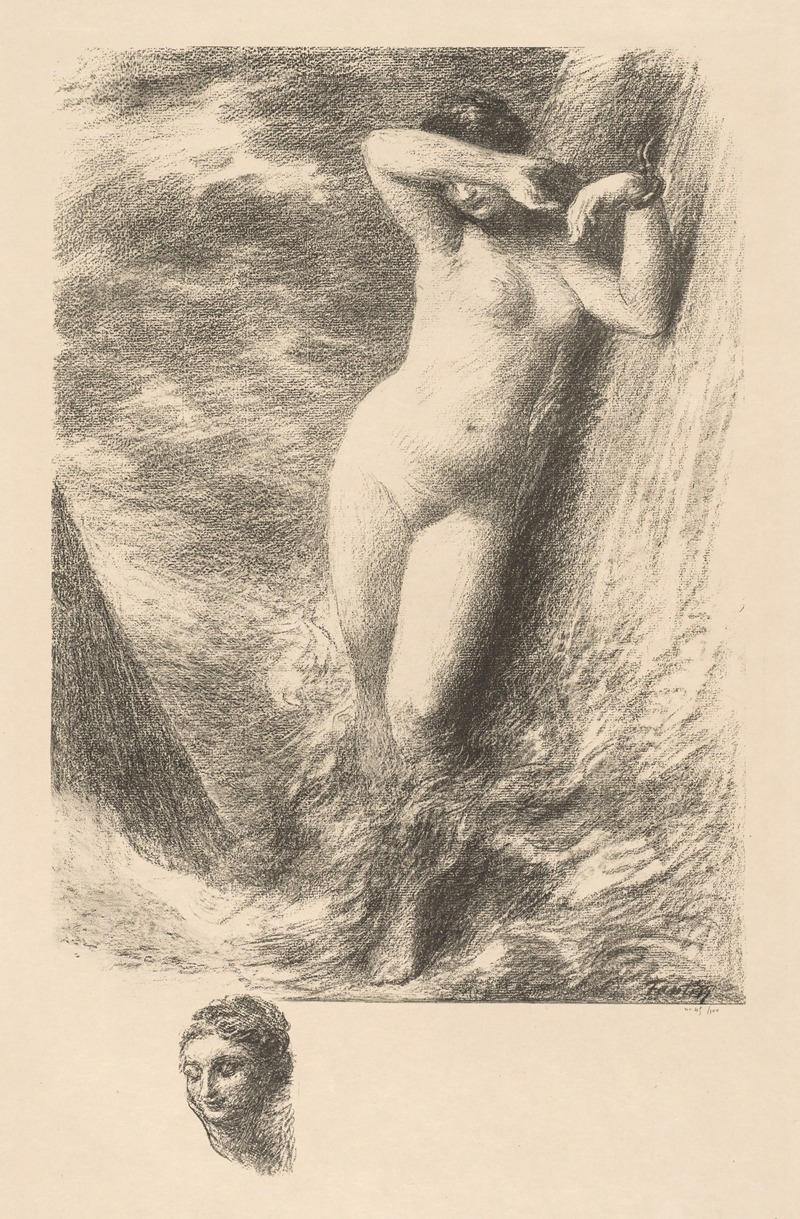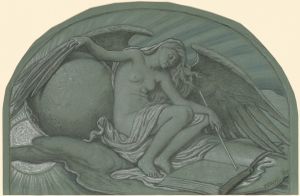
Andromeda
A hand-painted replica of Henri Fantin-Latour’s masterpiece Andromeda, meticulously crafted by professional artists to capture the true essence of the original. Each piece is created with museum-quality canvas and rare mineral pigments, carefully painted by experienced artists with delicate brushstrokes and rich, layered colors to perfectly recreate the texture of the original artwork. Unlike machine-printed reproductions, this hand-painted version brings the painting to life, infused with the artist’s emotions and skill in every stroke. Whether for personal collection or home decoration, it instantly elevates the artistic atmosphere of any space.
Henri Fantin-Latour, a French painter best known for his still lifes and portraits, created the painting Andromeda in 1874. This work is an example of his foray into mythological and allegorical themes, which he explored alongside his more widely recognized floral compositions and group portraits of contemporary artists and intellectuals.
The painting depicts the mythological figure Andromeda, a character from Greek mythology. According to the myth, Andromeda was the daughter of Cepheus and Cassiopeia, the king and queen of Ethiopia. She was chained to a rock as a sacrifice to appease a sea monster sent by Poseidon, but she was ultimately rescued by the hero Perseus. Fantin-Latour's interpretation of Andromeda focuses on her vulnerability and beauty, presenting her as a solitary figure in a dramatic and dreamlike landscape.
Fantin-Latour's style in Andromeda reflects his interest in the Symbolist movement, which sought to convey ideas and emotions through symbolic imagery rather than direct representation. The painting is characterized by its soft, atmospheric tones and delicate brushwork, which create a sense of otherworldliness. The figure of Andromeda is rendered with a sense of grace and melancholy, emphasizing her plight and the emotional resonance of the myth.
While Fantin-Latour is primarily celebrated for his realistic still lifes and portraits, works like Andromeda demonstrate his versatility and his engagement with broader artistic trends of the 19th century. The painting also reflects the influence of Romanticism, particularly in its focus on a dramatic and emotive subject drawn from classical mythology.
Andromeda is part of Fantin-Latour's lesser-known body of work that explores imaginative and fantastical themes. These works, though not as commercially successful as his still lifes, reveal his deep interest in literature, music, and mythology. Fantin-Latour was also known for his admiration of composers such as Wagner and Berlioz, whose operatic works often drew on mythological subjects, and this interest may have informed his approach to paintings like Andromeda.
Today, Andromeda is recognized as an example of Fantin-Latour's ability to move beyond the confines of realism and engage with the symbolic and the poetic. The painting is housed in the Musée des Beaux-Arts in Lyon, France, where it continues to be appreciated for its artistic and historical significance.


















